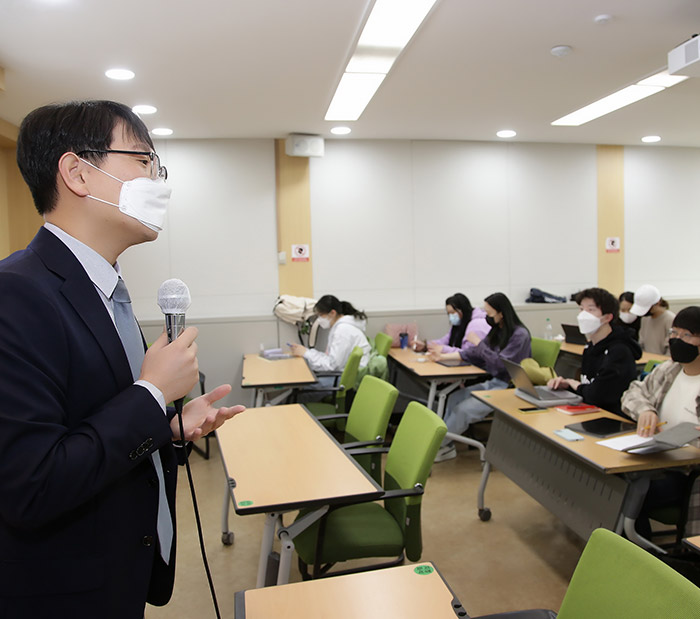Research Stories
Proposal of Social Media donation message strategy in consideration of psychological traits ‘pride and gratitude’
Pride combined with self-benefit appeals will be more persuasive than gratitude combined with other-benefit attractions in social media fundraising campaigns.
Media & Communication
Prof.
BAEK, TAE HYUN
Professor Tae Hyun Baek in the Department of Media and Communication has published hisfirst-author study in the 2022 March issue of the Journal of Business Research(IF = 7.550, Q1 in Business/Marketing Category). He collaborated with ProfessorSukki Yoon at Bryant University.
He conducted three experimental studies of prosocial advertising on social media to investigate how self-benefit (e.g., “Make your life more meaningful and earn a taxdeduction by giving your support”) and other person-benefit (e.g., “Help others suffering from hunger and make our community a better place by giving yoursupport”) donation appeals paired with pride and gratitude affect donation amounts and donation intentions.
He examined incidental and integral emotion induction procedures and used diverse samples of college students and nonstudent adults. Participants induced to feel pride donatedmore significant amounts (Study 1) and donated more frequently (Studies 2 and3) when they viewed Twitter and Instagram ad messages that focused on thebenefits to donors themselves rather than focus on benefits to others in need.However, self-benefit and other-benefit appeals were equally effective wheninduced to show gratitude.
This research contributes to theliterature by identifying pride and gratitude as determining the relativeeffectiveness of self-benefit versus other person-benefit appeals. In addition,to the best of our knowledge, this research is the first to investigate howpositive emotions can be matched explicitly with message appeals to influencedonation amounts and intentions to donate.
Practically, the findings of this researchhave the potential to impact social media fundraising advertising strategies.For example, nonprofit organizations advertising on Facebook and Twitter mighthighlight their achievements and then provide individualized congratulatoryemails that make recipients feel proud or grateful. For instance, St. JudeChildren’s Research Hospital could advertise its success in increasing survivalrates through innovative research and then send messages that evoke pride. Likewise,the World Wildlife Fund could promote its success in saving endangered speciesfrom extinction and sending thank you messages that evoke gratitude. Relatedly,charity fundraisers might use social media content to trigger feelings of prideand gratitude through corresponding emotion-laden hashtags (e.g., #proud and#grateful) depending on whether the posting contains egoistic or altruisticmessages.


